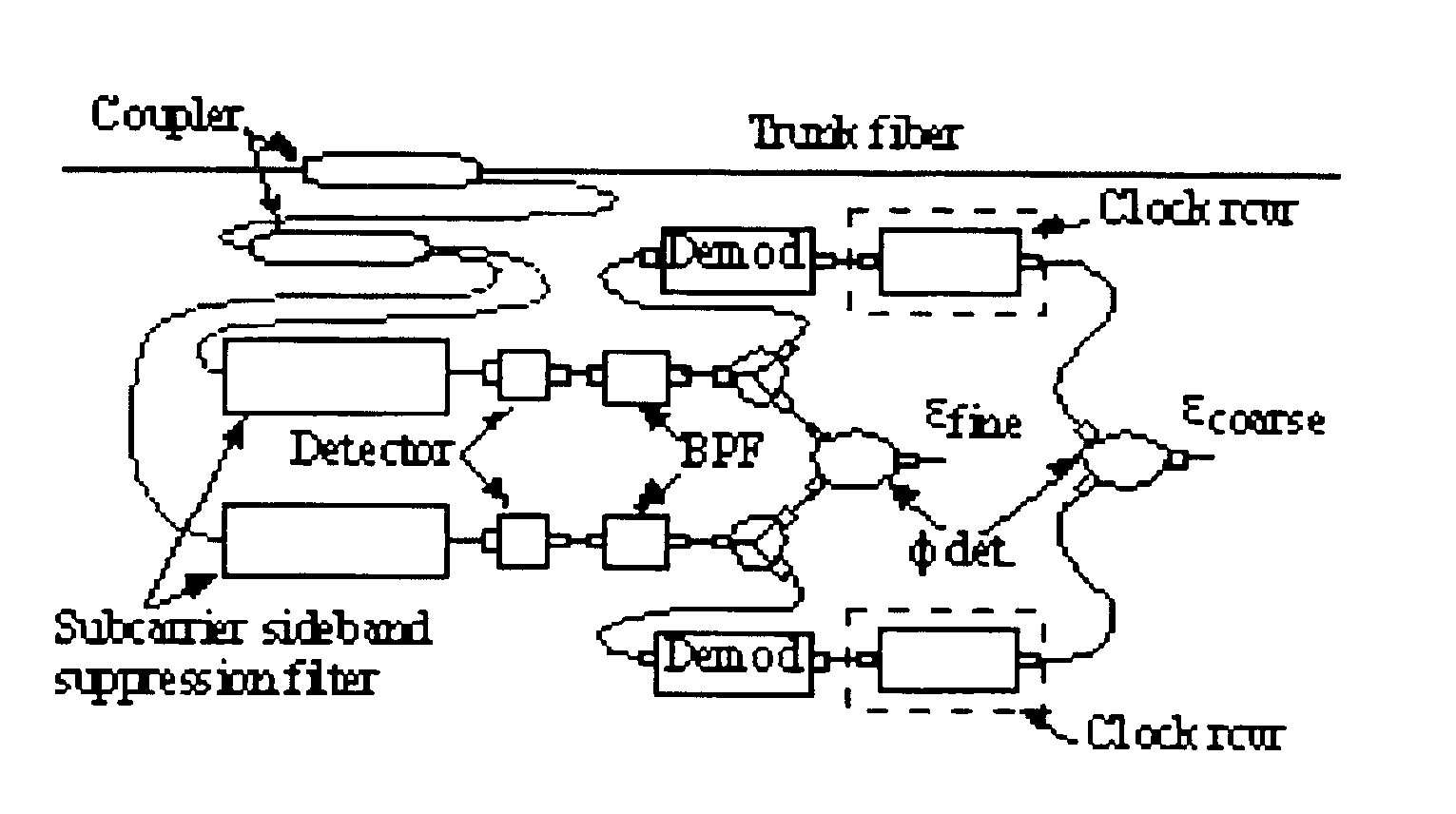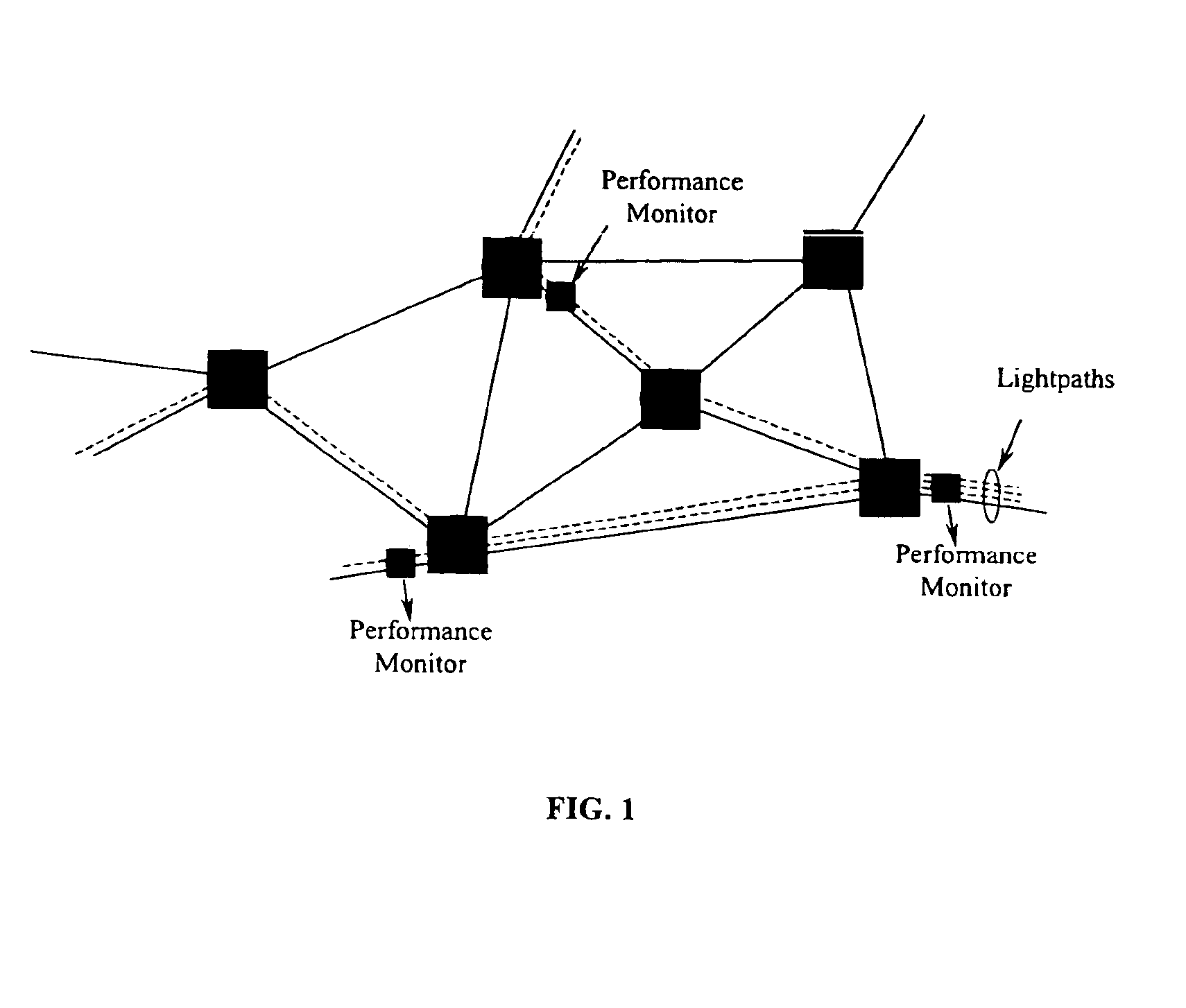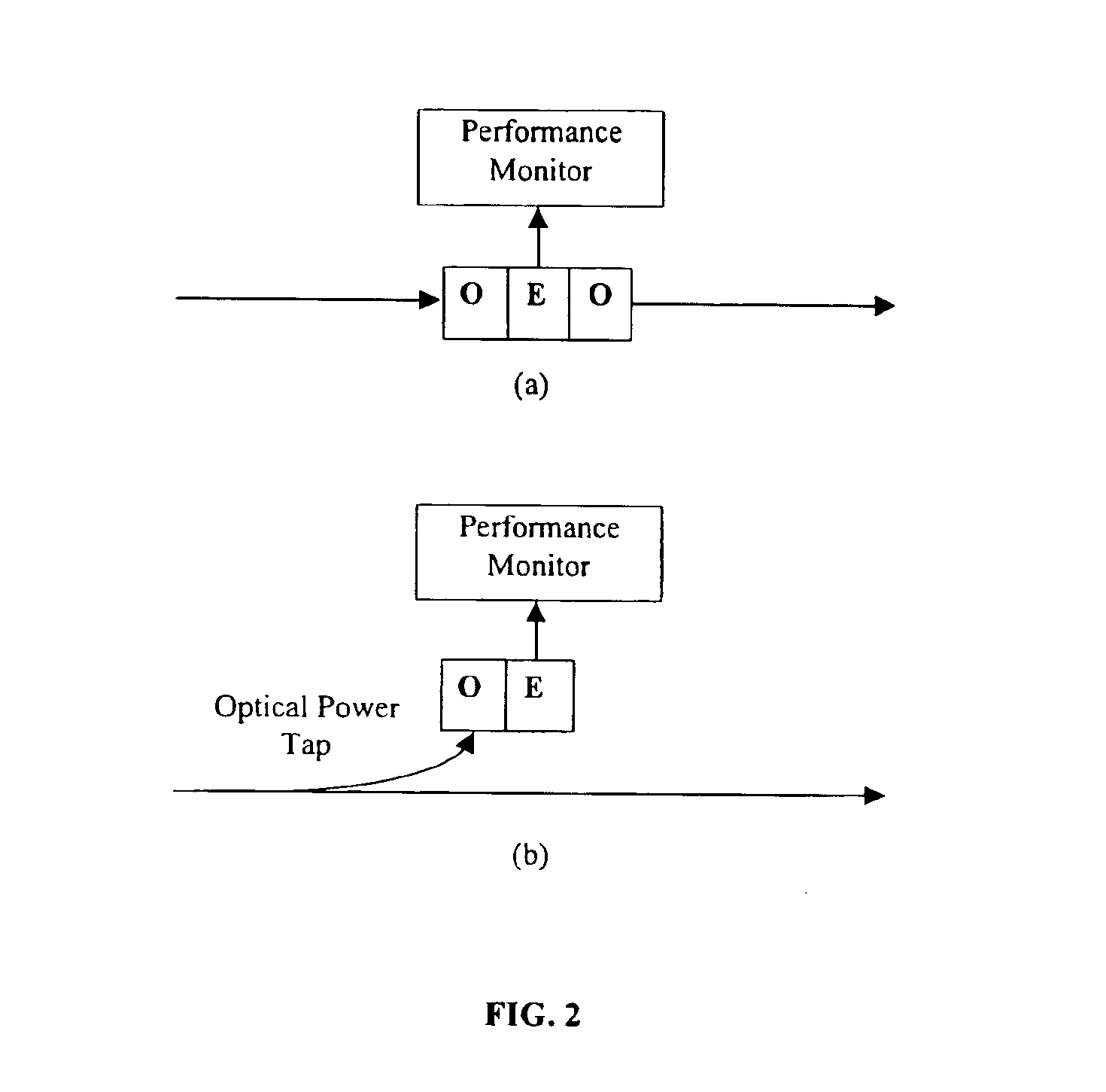Methods for monitoring performance in optical networks
a technology of optical networks and optical fibers, applied in the field of optical fiber systems, can solve the problems of difficult direct measurement of, for example, ber, and the difficulty of managing these networks based on statically mapped network element properties
- Summary
- Abstract
- Description
- Claims
- Application Information
AI Technical Summary
Benefits of technology
Problems solved by technology
Method used
Image
Examples
Embodiment Construction
[0031]Future WDM optical networks will utilize dynamic routing of wavelengths as “lightpaths” through optical nodes as shown in FIG. 1. It is expected that optically switching these lightpaths will have a positive impact on cost, network utilization and management in the networking layer analogous to the impact on cost that erbium-doped fiber amplifiers (EDFAs) had on regeneration in transmission links.
[0032]An important issue in network management and survivability is the ability to measure the performance of optical data, detect degradation and failures and provide means of failure location and isolation. The optical performance monitoring (OPM) approach deviates from traditional approaches in several ways. Current approaches involve quantifying link parameters (e.g. dispersion, loss) on a link-by-link basis, typically under static conditions. The OPM approach measures the condition of signals at arbitrary points within the network without detailed knowledge of the lightpath or th...
PUM
 Login to View More
Login to View More Abstract
Description
Claims
Application Information
 Login to View More
Login to View More - R&D
- Intellectual Property
- Life Sciences
- Materials
- Tech Scout
- Unparalleled Data Quality
- Higher Quality Content
- 60% Fewer Hallucinations
Browse by: Latest US Patents, China's latest patents, Technical Efficacy Thesaurus, Application Domain, Technology Topic, Popular Technical Reports.
© 2025 PatSnap. All rights reserved.Legal|Privacy policy|Modern Slavery Act Transparency Statement|Sitemap|About US| Contact US: help@patsnap.com



